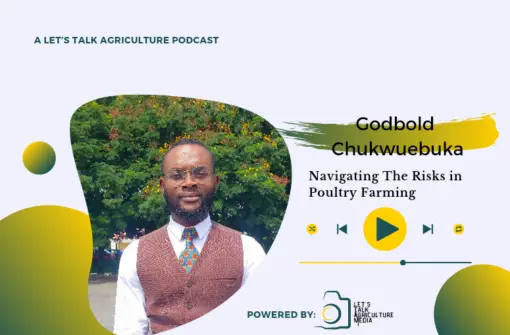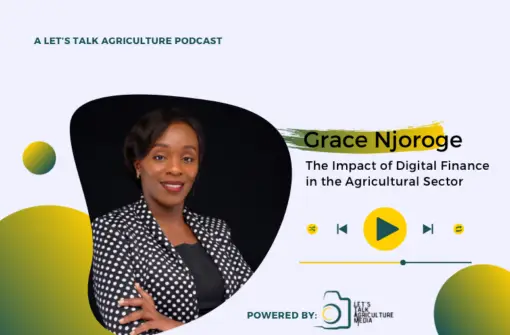Hey beautiful people, welcome to the Let’s Talk Agriculture podcast show, where we connect you with the happenings and opportunities
directly from experts across the globe. Now, if this is your first time learning about Let’s Talk Agriculture, we are a public relations and communications firm from the Communications Counsel to the agriculture sector.
Do you want to learn more? Explore our services by visiting letstalkagriculture.com. So, today’s episode is quite simple. Let’s talk about climate change. What are the challenges farmers are facing?
What are the implications of climate change? And how can farmers really mitigate the risk involved? Now, the seasonal climate prediction for 2023 was released by the Nigerian Meteorological Agency. And I thought it would be amazing
to share this piece of information to help our farmers prepare better as it relates to the rainfall, to dryness, to diseases and so many more. Lots of things that are, of course, affecting plant season, crops and the rest.
So, join me as I welcome our guest for today’s show, who will discuss in detail the implications of this report and how best farmers can or should mitigate the risk. Hello, Ilyasu! Thank you so much for joining the show today. How are you doing? Thank you, Sharon.
I’m doing great. Hope you are too. Yeah, thank you so much. It’s really a pleasure to always have you on the show because every time you come on the show, you always have something very, very amazing for the farmers.
I mean, I see all of the stuff that you do and your dedication to the agricultural sector in Nigeria. So, it’s always amazing to have you on the Let’s Talk podcast show where you can share your insights.
So, once again, thank you for joining the show. Okay, thank you very much. And like you said, I’m always happy to share my, you know, thoughts with farmers, you know, of making sure their productivity is enhanced.
That’s me once again. You’re welcome. It’s my pleasure. So, I believe that you also came across the report, very vital to the farmers. I mean, considering your work and everything that you do,
it is not strange if you actually came across the report, of course, because I trust that you are always on the lookout for farmers and how best to help them, just like you said, to, you know,
enhance their productivity and the rest. So, but before we get right into that, let’s get started with the challenges associated with climate change. I mean, what are the challenges that farmers are facing? From your experience being on the field
and working with farmers across different value chains, what can you tell us on the climate change challenges, climate challenges facing the farmers right here in Nigeria? I just want to hear from you, from your own experience working with farmers in Nigeria,
what can you really point out some of the challenges that they have faced? And yeah, let’s take it up from there. So, thank you once again. I think challenges of climate change are quite glaring and obvious,
especially as they affect smallholder farmers in Nigeria, as well as food production in general. One of the obvious impact or challenges of climate change to farmers and agriculture is actually flood incidents,
whereby climate change promote the occurrence of flood, which as well affect our farmers and our farmlands.
We have seen last year how flood displaced hundreds of thousands of smallholder farmers in Nigeria, destroyed hundreds of thousands of hectares, destroyed billions worth of food and food product,
and how it made farmers to actually lost all their investment. So, flooding is one of the challenges. Issue of drought also is one of the challenges. We have experienced uneven distribution of rainfall
for the past five years in this country. Rainfall schedule have significantly been altered due to the drought in the Sahel region of the country. Another challenges of climate change is actually insecurity,
because climate change brought about insecurity as well.




